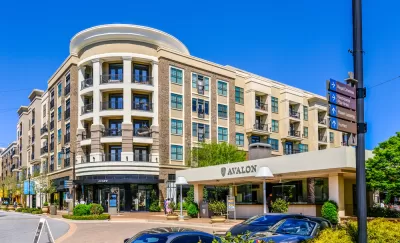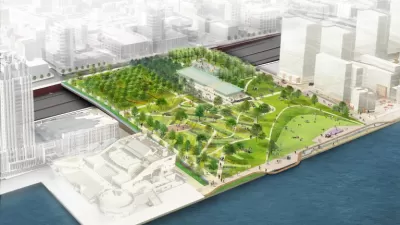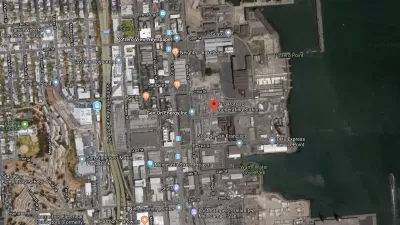Cities around the country have taken notice of the big redevelopment programs in the city of Alpharetta.

Alpharetta, Georgia has redeveloped multiple live, work, shop, and play districts in less than ten years, according to a paywalled article by Adrianne Murchison for the Atlanta Journal Constitution. The city has become a model for contemporary urban redevelopment widely studied by other municipalities.
According to Murchison, the city of Cary, North Carolina modeled the recently opened a $1-billion, mixed-used shopping development called Fenton based on the model provided Alpharetta. “In addition to Cary, representatives from Huntersville, North Carolina and Franklin, Tennessee said they have visited Alpharetta. Locally, Roswell and Dunwoody have consulted with Alpharetta’s community development department,” adds Murchison.
There’s plenty to see in Alpharetta, which achieved its redevelopment vision for two districts, the Civic Center and Avalon. A third, North Point, is underway Murchison. As for how Alpharetta has achieved so much mixed-use development, Murchison credits the city’s decision to acquire 21 acres of privately owned land, a $29 million voter-approved bond referendum in 2011, large investments in the city’s linear park, and other interventions including requirements for 68% owner-occupied residential units in mixed-use developments.
FULL STORY: Alpharetta’s approach to redevelopment a model for other cities

Trump Administration Could Effectively End Housing Voucher Program
Federal officials are eyeing major cuts to the Section 8 program that helps millions of low-income households pay rent.

Planetizen Federal Action Tracker
A weekly monitor of how Trump’s orders and actions are impacting planners and planning in America.

Ken Jennings Launches Transit Web Series
The Jeopardy champ wants you to ride public transit.

Washington Legislature Passes Rent Increase Cap
A bill that caps rent increases at 7 percent plus inflation is headed to the governor’s desk.

From Planning to Action: How LA County Is Rethinking Climate Resilience
Chief Sustainability Officer Rita Kampalath outlines the County’s shift from planning to implementation in its climate resilience efforts, emphasizing cross-departmental coordination, updated recovery strategies, and the need for flexible funding.

New Mexico Aging Department Commits to Helping Seniors Age ‘In Place’ and ‘Autonomously’ in New Draft Plan
As New Mexico’s population of seniors continues to grow, the state’s aging department is proposing expanded initiatives to help seniors maintain their autonomy while also supporting family caregivers.
Urban Design for Planners 1: Software Tools
This six-course series explores essential urban design concepts using open source software and equips planners with the tools they need to participate fully in the urban design process.
Planning for Universal Design
Learn the tools for implementing Universal Design in planning regulations.
Heyer Gruel & Associates PA
Ada County Highway District
Institute for Housing and Urban Development Studies (IHS)
City of Grandview
Harvard GSD Executive Education
Toledo-Lucas County Plan Commissions
Salt Lake City
NYU Wagner Graduate School of Public Service




























